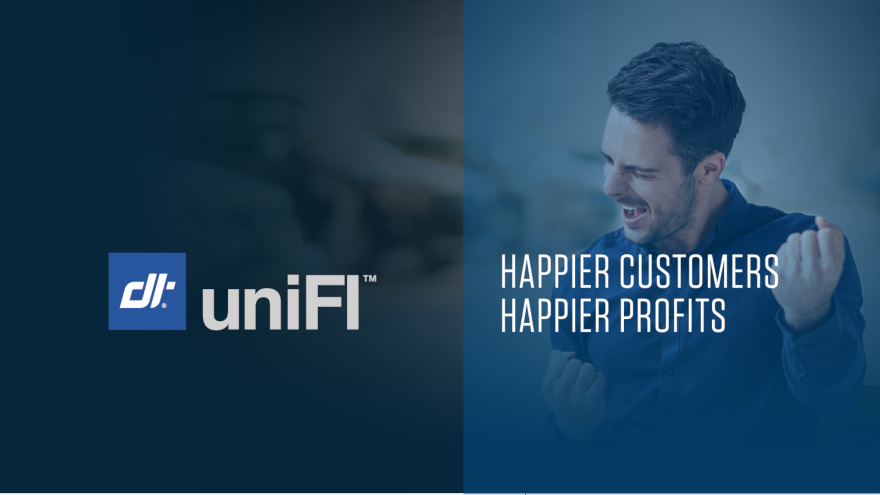Mingled within rounds of Thanksgiving feasts, consumers likely will be purchasing an array of items, confidently leveraging discounts from a variety of retailers.
But when it comes to buying a vehicle during the holiday weekend, Capital One Auto Finance found that consumers aren’t as confident as they are when purchasing towels and televisions.
Based on a recent survey conducted by Capital One Auto Finance, the finance company indicated consumer concerns over the current vehicle-buying process — including transparency, time issues and overall confidence — could keep them from bringing home a vehicle for the holidays.
Three highlights from Capital One’s survey included:
— Only 6 percent of respondents find the vehicle-buying process completely transparent.
— Only 20 percent of respondents feel very confident when shopping for a vehicle.
— Sixteen percent of respondents say they are “a boss” when it comes to negotiating during the vehicle-buying process.
The survey of 1,002 U.S. adults ages 18 and older and was conducted on behalf of Capital One Auto Finance using Engine Insight’s Online CARAVAN omnibus. Of the 1,002 participants, 693 did not work at a dealership or ad/public relations company, have purchased a vehicle in the past, are planning to get an auto loan or ever had one.
The survey was fielded on Oct. 15-17.
“The car-buying process does not need to be a source of stress. And this current state of trust and transparency in car-buying needs to be addressed,” said Jeff Rabinowitz, managing vice president, Capital One Auto Finance.
In response, Auto Navigator by Capital One is designed to provide a digital inventory of millions of vehicles from thousands of participating dealerships across the nation so consumers have all the information needed to confidently find and finance a purchase.
Auto Navigator can support consumers by allowing them to see if they pre-qualify for financing with no impact to their credit score, saving them both angst and time before heading to the dealership.
“Capital One is dedicated to helping consumers feel confident throughout their car-buying journey,” Rabinowitz saud, Auto Navigator and our Auto Learning Center make the car-buying process easier and more efficient for today’s consumer.”
For more information about Capital One Auto Navigator, visit www.capitalone.com/cars.
Technologically forward consumers often order their coffee ahead of time and pick it up at the counter, spending less time in the shop than it took you to read this sentence.
Well, Dealertrack wants to help dealerships and finance companies serve those consumers who want to purchase an SUV nearly as fast as that latte. On Monday, Dealertrack announced a new F&I software platform dubbed Dealertrack uniFI.
Auto Fin Journal connected with Cheryl Miller, vice president and general manager of Dealertrack F&I Solutions, in advance of Monday’s official launch to discuss how the vehicle-buying process has changed since Dealertrack came onto the scene.
“Dealertrack was the original fintech. We created the electronic path between the dealers and the lenders,” Miller said. As the consumer needs have evolved and the dealer needs have evolved, that’s taken it to a whole new level of expectations in the market. If you think about the consumer thought process of if I can go on any website for any retailer and buy something, why hasn’t buying a car become much easier?
“When we started looking at the workflows of the different systems, and Cox Automotive started coming together with all of the solutions it can bring to the market,” she continued, “we started down a journey about how do we look at this workflow, and how do we make it more efficient?
“There are three key players in the transaction, the consumer, the dealer and the lender. We want to make a much better experience for all through the pipeline. The consumer has expectations, and the dealer wants to satisfy those expectations,” Miller went on to say.
The company highlighted the new platform is designed to streamline the vehicle-buying process for consumers, dealers, finance companies and warranty providers by offering a single platform that seamlessly can connect the entire deal process with open integration.
Dealertrack uniFI addresses a major pain point for consumers, dealers and lenders. Less than half of consumers are satisfied with the three hours it takes on average to finalize their vehicle purchase at a dealership, according to Cox Automotive’s 2018 Car Buyer Journey Study.
Dealers recognize the issue with 69 percent concerned about the need to deliver a better customer experience and increase the efficiency of their sales process, according to 2018 Cox Automotive Dealer Communication & Operations Study.
On the finance-company side, Dealertrack acknowledged delays often occur around multiple systems requiring rekeying of data and the error rate on paper contracts.
This final stage can be complicated with different systems handling different parts of the process, such as credit checks, contract applications, taxes, titling and trade-in values. Dealership staff navigate on average more than six different systems to finalize a sale, a Cox Automotive poll showed.
Dealertrack uniFI can bring together these different systems to create a seamless F&I solution. Instead of switching between multiple systems and re-entering data each time, dealership staff can use Dealertrack uniFI to run credit checks, submit credit applications, structure deals and calculate accurate payments, add aftermarket products, and speed trade-in payoff and title release.
Dealertrack highlighted this single platform also can generates compliance-specific documents that meet federal laws and regulations and creates a check-list to track actions — all in one digital deal jacket. Dealertrack uniFI connects both online and in-store interactions, making it easier to seamlessly track the entire car-buying experience for each customer.
“After our upgrade to the new Dealertrack uniFI platform, I’ve experienced a level of efficiency that gives me both speed and accuracy and allows me to work more deals for more customers in a shorter period of time,” said Richard Cirami, finance director of North Shore Honda in Glen Head, N.Y., an early customer of Dealertrack uniFI.
Dealertrack uniFI can streamline the process by creating a single system built as an open platform to make it easier to connect various systems needed to handle different parts of a car deal. The open platform can allow Dealertrack uniFI to work with other Cox Automotive solutions, solutions from other providers as well as with Dealertrack’s network of more than 1,600 auto finance institutions.
“F&I is the backbone of any dealership, and Dealertrack uniFI has made a significant impact on our business by making our F&I process faster from start to finish,” said Joe Speaker, sales manager for Neuwirth Cars On Market in Wilmington, N.C., who’s also an early customer of Dealertrack uniFI.
“I now utilize more lenders and the faster workflow has made me a more valuable employee. The quicker turnaround time in F&I also means happier customers and better CSI scores,” Speaker continued.
Miller emphasized to Auto Fin Journal that dealerships that adopt this new platform quickly can enjoy similar results to North Shore Honda and Neuwirth Cars On Market.
“The car-buying experience should be an exciting time for consumers, but it’s often lengthened by a set of disjointed technologies required to finalize the sale,” Miller said. “Dealertrack uniFI creates a single technology platform to simplify the process. Dealership sales staff spend less time logging into and typing data into various systems, enabling customers to enjoy their new vehicles more quickly and freeing dealers to focus more attention on serving customers.
“In today’s fast-paced world, we could all use some extra time,” Miller added. “Dealertrack uniFI is one way that Cox Automotive is trying to help both customers and dealers gain back time that they can spend on more enjoyable and productive activities.”
Two developments surfaced on Friday involving Carvana; one involving a serious amount of financing capacity and the other much more light-hearted as an effort to drum up interest in the online used-vehicle retailer.
First the funds as Ally Financial announced it is providing up to $2.3 billion in financing commitments over the next 12 months to support retail contracts from and inventory needs of Carvana.
Also, in celebration of their mutual affinity for e-commerce, Carvana and the characters from Disney’s “Ralph Breaks the Internet” are joining forces throughout a multi-channel campaign to highlight just how fun it can be for consumers to buy a vehicle online in as little as 10 minutes and have it delivered to their door as soon as the next day.
While the Disney movie is designed to bring out laughter, it’s certainly not funny business about the relationship Ally and Carvana have.
In its third year of financing agreements with Carvana, Ally will provide up to $1.25 billion available for bulk purchases, in addition to providing a $350 million warehouse credit facility. The $650 million floorplan credit line includes a two-year commitment and represents an increase of $300 million over the existing credit line.
“This latest agreement builds on the strong relationship we’ve established with Carvana and speaks to our commitment to supporting auto retailers as they develop innovative, digital financing experiences for their customers,” said Doug Timmerman, president of auto finance for Ally.
“Our extensive experience in the auto business enables us to tailor financing agreements that make it possible for our customers to reach their goals, and in Carvana’s case, change the way people buy cars,” Timmerman continued.
In the first two years, Ally had agreements to provide up to $2 billion in financing commitments for retail contracts from Carvana. The funding has helped position Carvana for growth as it works with more consumers.
The latest agreement also includes an increased floorplan credit line and continued vehicle sourcing through Ally’s SmartAuction platform.
“We’re on a mission to change the way people buy cars,” said Ernie Garcia, Carvana founder and chief executive officer. “This newest commitment from Ally gives us increased flexibility in investing in the growth of our company and ability to continue to deliver exceptional customer experiences every day.”
Customers who visit Carvana.com can shop more than 10,000 vehicles, finance, purchase and sell their current vehicle to Carvana in as little as 10 minutes, from the comfort of home or on the go via their mobile device.
Carvana offers as-soon-as-next-day delivery in 81 cities across the U.S. and has vehicle vending machines in 14 cities in Texas, Tennessee, North Carolina, Florida, Arizona, Ohio, Pennsylvania and Washington, D.C.
Carvana leveraging Disney movie in promotional campaign
The last thing any e-commerce company wants is for someone to break the internet. Even if that someone is Wreck It Ralph, himself.
But that’s exactly what he and Vanellope are doing in the highly anticipated Disney movie, “Ralph Breaks the Internet,” hitting theaters on Nov. 21.
Carvana is riding along for an exciting collaboration with the movie.
Throughout November, Carvana advertising featuring Disney’s “Ralph Breaks the Internet” will be all over — you guessed it — the internet, as well as TV, out-of-home and digital channels, including Carvana.com. Fans can tag along and see Ralph and Vanellope breeze through the world of online car buying with Carvana and mark their calendars to see the movie, only in theaters on Nov. 21.
To celebrate the launch of the campaign, Carvana hosted an online sweepstakes for one lucky winner and a guest to attend Disney’s “Ralph Breaks the Internet” Hollywood premiere in Los Angeles, all expenses paid.
Carvana kicked off national TV advertising with a 30-second commercial that combines animation and live-action footage, following Ralph and Vanellope as they go on a shopping spree through the internet and wind up with more than they expect.
The clip can be seen here.
Before the movie is on the big screen, visitors to Carvana.com will be greeted by Ralph on their computers and mobile devices, and will even have the chance to do 360-degree virtual vehicle tours of cars from the movie.
Commuters who pass by Carvana’s vehicle vending machines in the Phoenix metro area — where the company is headquartered — and Orlando, Fla., will also get a glimpse of Ralph, featuring a custom-designed wrap advertising the movie on can’t-miss, all-glass towers.
Digital channels, including social media, display ads and third-party listing sites, will encourage fans to see “Ralph Breaks the Internet” on Nov. 21 and buy their next vehicle online.
“Cars are a central storyline element in both movies, and now that Ralph and Vanellope are entering Carvana’s world, it was fitting that we join forces to showcase how we’re making car buying fun again,” Carvana chief brand officer and co-founder Ryan Keeton said.
“We hope ‘Ralph Breaks the Internet’ fans have as much fun seeing the movie as we did developing the elements of this campaign,” Keeton went on to say.
Platforms like Amazon give consumers the pathway to purchase everything from mechanical pencils to a drone in the middle of the afternoon or night with just a few swipes on a smart device.
Now Darwin Automotive is putting F&I software in place to give vehicle buyers the same flexibility.
This week, the company announced the release of Darwin Direct, which is designed so dealerships can now empower customers to purchase, contract, e-sign and pay for F&I products 24/7, 100 percent on their own, absent any human involvement from the dealership.
JM&A Group, a national leader in F&I consulting, is currently piloting Darwin Direct through its dealer customers.
In addition, Darwin Direct will soon be piloted by other major F&I providers.
“Darwin Direct provides our dealers with an F&I growth opportunity that is exactly what the industry needs right now,” said Scott Gunnell, vice president sales operations and strategy with JM&A Group. “It is designed to combat the ongoing issue of margin compression and the lost opportunities from customers leaving the dealership without purchasing F&I products.
“Customers can now access and purchase F&I products from the dealership whenever and wherever they chose; a shopping mall, the service drive, customer’s home, their smartphone, you name it. The profit potential is significant,” Gunnell continued.
“We are excited about the future and this kind of opportunity where our dealers’ customers can enjoy an excellent experience as part of the vehicle-buying process,” he went on to say.
The company highlighted more than 3,000 dealerships have enrolled in Darwin Automotive’s F&I software in just the past two years.
Darwin Automotive chief executive officer Phillip Battista referenced how eager consumers turn to platforms like Amazon to find items they want.
“I believe a significant part of our industry wants to offer customers more self-serve functionality similar to Amazon, so we have launched Darwin Direct,” Battista said.
“For years dealers have stated that lost F&I sales are a huge hole in their business. As F&I is so important to overall profitability, it’s an absolute must to go after these sales in a way that is easy for consumers to do on their own,” he continued.
According to Battista, OEMs currently market extended service contracts to consumers and, if the customer chooses to buy, the OEM gets 100 percent, and the dealership gets nothing.
“Dealers are losing out on a tremendous amount of F&I revenue. Now they can market and sell F&I products directly to consumers 24/7,” Battista said.
“Price and payment are completely integrated with Service Payment Plan, which even offers zero percent financing for 24 months. Our dealers enjoy substantial gains in F&I profit, because we provide a process that resonates with the typical consumer and delivers their options for F&I protection in a way not previously seen,” Battista added.
For more information or to schedule a product demonstration, call (732) 781-9010 or visit www.darwinautomotive.com.
A trio of companies are joining forces to revamp the credit score.
Experian, FICO and Finicity announced a new credit score this week during the Money 20/20 USA conference. The new score, called UltraFICO Score, leverages account aggregation technology and distribution capability from Experian and Finicity to help consumers improve access to credit by tapping into consumer-contributed data, such as checking, savings and money market account data, that reflects responsible financial management activity.
With UltraFICO Score, the companies explained that a consumer grants permission to contribute information from banking statements, including the length of time accounts have been open, frequency of activity and evidence of saving, which can be electronically read by Finicity and combined with consumer credit information from Experian to provide an enhanced view of positive financial behavior.
Experian, FICO and Finicity estimate this new score has the potential to improve credit access for the majority of Americans and is particularly relevant for those who fall in the grey area in terms of credit scores (scores in the upper 500s to lower 600s) or fall just below a finance company’s cut-off score.
Consumers who are relatively new to credit with limited history or those with previous financial distress that are getting back on their feet stand to benefit the most, according to the companies.
“This changes the whole dynamic of the lender and customer relationship,” said Jim Wehmann, executive vice president of scores at FICO. “It empowers consumers to have greater control over the information that is being used in making credit risk decisions. It also enables a deeper dialogue between the consumer and lenders to help both parties make better financial decisions.
“It’s a game changer,” Wehmann added.
The companies indicated the UltraFICO Score will launch as a pilot program in early 2019. The pilot is designed to validate the score and assess willingness of consumers to share financial data for a potentially higher score.
The company noted pilot participants were sourced across various lines of businesses.
The model developed by FICO will be implemented through Experian and integrated into a finance company’s existing operational workflow. Borrower data will be aggregated through Finicity.
Officials pointed out the UltraFICO Score builds off of the framework of the base FICO Score, and is designed to reflect the same odds-to-score relationship so that the new score can be easily incorporated into lending strategies and origination account management systems.
The UltraFICO Score is slated to be broadly available to finance companies during the middle of next year.
“As the consumer’s bureau, our goal is to help empower consumers and to give better access to credit for more consumers, all while promoting fair lending,” said Alex Lintner, president of consumer information services at Experian.
“Through this project, we’ve found a new way to use consumer-permissioned data that allows lenders to make better decisions and helps consumers gain access to credit,” Linter continued.
Finicity chief executive officer Steve Smith went on to say, “This approach allows Americans to benefit from positive financial behaviors We are proud to have created a new way for consumers to share financial information, safely and securely so that a new UltraFICO Score can be created.”
To learn more, visit www.fico.com/en/products/ultrafico-score or www.fico.com/ultrafico.
Since oftentimes potential buyers are cruising website and making considerations based on their monthly budget, truPayments recently introduced tru Shop-by-Payment and the ShopByPayment.com website.
Company officials explained that tru Shop-by-Payment is a Software-as-a-Service product for dealers and finance companies aimed at turning the buying process upside down by leveraging new technology.
The company explained that tru Shop-by-Payment can provide a one-to-one personalized shopping experience, allowing consumers to shop simultaneously for their vehicle and financing across all a dealer’s inventory and finance programs, for all available terms, with rebates, incentives, specials, ePrice, trade-in equity, etc., calculated and applied.
This experience is powered by the patent-pending truPayments engine and the company’s new Grail Adaptive Digital Retailing platform.
Tarry Shebesta, chief executive officer of truPayments, indicated that the customized shopping experience begins not with selecting a vehicle, but with personalization. Shebesta noted each customer journey is uniquely built around the customer’s preferences, financial profile and the context of their activities.
For the majority of consumers, Shebesta insisted that monthly payment is the No. 1 factor when buying a vehicle, but it’s the last thing buyers learn. Similar to offline processes, he acknowledged most digital retailing solutions begin when a customer selects a vehicle to purchase, after which they can figure out what their payment options might be.
By starting with credit, Shebesta pointed out that customers can see only vehicles and financing options for which they actually qualify.
“Presenting customers with inaccurate payments results in frustration, embarrassment and lost sales,” Shebesta said. “Comparison shopping for cars based on real credit and monthly budget creates an empowering customer experience.”
Shebesta mentioned credit information is obtained using a “soft pull,” which does not impact on the customer’s credit. He added the process is completely private and does not require sensitive personal information, such as Social Security Number or date of birth.
“Wow! Is how customers feel when they experience tru Shop-by-Payment,” Shebesta said. “They discover vehicles they didn’t know they could afford or a payment they didn’t know they could get.”
Parent company, Automobile Consumer Services, introduced Shop-by-Payment functionality in its DriveItNow product in 2013. And now, tru Shop-by-Payment “takes personalized payment shopping to the next level,” according to the company.
Dealers and finance companies can learn more at ShopByPayment.com.
A company that specializes in catering to customers who are low-to-moderate income individuals with soft credit histories now has the technological horsepower constructed by SpringboardAuto.com.
Oportun, a technology-powered community development financial institution (CDFI), announced on Tuesday it has acquired the intellectual property and financing platform of SpringboardAuto.com, a platform designed to be a mobile-friendly, auto finance solution to simplify a secure online transaction for customers, dealerships and private sellers.
“We’ve long wanted to find more ways to help the customers we serve, and this is an important step towards our goal of offering responsible and affordable auto loans,” said Raul Vazquez, chief executive officer of Oportun, which as a federally defined CDFI is a mission-driven financial institution that creates economic opportunity for individuals and small businesses, quality affordable housing and essential community services.
As part of the transaction, the SpringboardAuto.com team has joined Oportun. Jim Landy, previously chief executive officer of SpringboardAuto.com, will now serve as executive vice president and general manager for Oportun’s auto finance business unit.
“We are pleased to have Jim and the talented SBA team join Oportun,” Vazquez said. “Over time, we’ll work to integrate the SBA platform into Oportun and begin to develop the right offering for our customers.”
Landy is part of the collection of experts and executives set to appear during Used Car Week 2018, which begins Nov. 12 at the Westin Keirland Resort and Spa in Scottsdale, Ariz. Landy shared what it means that SpringboardAuto.com is now a part of Oportun after launching a little more than two years ago.
“SBA’s proprietary technology was developed with consumers’ needs in mind,” Landy said. “We are excited to join Oportun so we can further extend our mission to provide a transparent, personalized and empowering car buying and auto finance experience.”
Cox Automotive grew again on Monday.
The company announced the acquisition of Intersection Technologies; better known in the aftermarket industry as F&I Express. Management said the deal furthers Cox Automotive’s mission to transform the way the world buys, sells, owns and uses cars.
While specific financial terms of the deal were undisclosed, Cox Automotive mentioned all F&I Express employees will remain in their current roles at F&I Express, and the business unit will operate out of its current Grapevine, Texas location.
The company indicated F&I Express will operate as a wholly owned subsidiary of Cox Automotive, which also includes:
— Autotrader
— Clutch Technologies
— Dealer.com
— Dealertrack
— Kelley Blue Book
— Manheim
— NextGear Capital
— VinSolutions
— vAuto
— Xtime
Cox Automotive noted that F&I Express will be a part of its retail solutions group.
“Combining assets, including a vast F&I providers network and unbeatable new technology, will create a competitive advantage driving continued value for dealers, agents, providers, and lenders,” said Mike Barrington, senior vice president retail solutions group sales, digital retailing and F&I solutions at Cox Automotive.
“As both pioneers and innovators, they’ve done an outstanding job of giving lenders and dealers who use multiple providers one place to go to rate, contract and register F&I products,” Barrington continued. “Together, F&I Express and Cox Automotive will continue to deliver the services and solutions F&I Express has been delivering to the market.”
Both companies have a history dating back to spring 2013 when Autotrader and Intersection Technologies leaders first met and decided to work together to further an initiative known today as digital retailing.
“F&I Express has developed innovative solutions via its technology, to connect the automotive marketplace to F&I providers,” said Brian Reed, chief executive officer and co-founder of F&I Express.
“Joining Cox Automotive gives F&I Express deeper resources and broader talent to deliver innovative technology solutions and superior service that will help position F&I Express as an unbeatable contender in this industry,” Reed went on to say.
Reed also touched on some of the products F&I Express delivers.
Express Recoveries is an optimized eCancellation solution connecting finance companies, providers and dealerships to streamline the cancellation and recoveries process in an efficient and compliant manner.
Express Digital Media can give digital retailers the power to educate car shoppers online with accurate and dynamic aftermarket rates and content.
For more information about either company, visit Dealertrack.com or fandiexpress.com.
As the firm itself pushes additional resources into its blockchain division, KPMG pinpointed how much fintech investment grew during the first half of this year.
According to KPMG’s Pulse of Fintech report, investment in U.S.-based fintech companies surged to $14.2 billion across 427 deals during the first half of 2018 as investors poured money into startups in fintech emerging segments such as regtech and blockchain, as well as late-stage companies.
KPMG highlighted fintech investment in the U.S. reached a new high of more than $8 billion in Q2, following a strong first quarter.
Total investment during the first half of 2018 increased from $12.2 billion across 371 deals during the second half of 2017, and included more than 10 $100 million plus mega rounds, including insurtechs Oscar and Lemonade, and blockchain-based consortia company R3.
“Unlike the broader VC market, early-stage fintech companies have continued to attract a solid flow of capital in the U.S., with the several top deals in Q2 going to seed or early stage companies,” said Brian Hughes, U.S. national co-lead partner of the venture capital practice at KPMG.
“At the same time, those able to attract later-stage funding likely reflects investor confidence in their ability to become market leaders, if they aren’t already,” Hughes continued.
During the first half of 2018, KPMG tabulated that venture capital investment in blockchain in the U.S. totaled $858 million, exceeding the 2017 total of $631 million.
“There’s more VC flow available than opportunities to invest — a sign of tremendous growth in the space,” said Safwan Zaheer, financial services digital and U.S. fintech lead for KPMG.
“Investments in blockchain related firms already doubled in the first half of 2018 compared to 2017,” Zaheer continued. “Blockchain has the potential to transform banking services. If banking systems were to be rewritten today they would be based on blockchain.”
Payments companies see strong exits
KPMG noted that the payments and lending sectors continued to be one of the most mature of the fintech subsectors during the first half of 2018, with most investment activity centered on late-stage companies and those companies seeking to exit.
Traditional banks invest in digital banking offerings
During the first half of 2018, KPMG pointed out that a number of traditional U.S. banks expanded their digital banking initiatives.
The report recapped that J.P. Morgan announced the success of a digital bank pilot project and its intent to roll out the digital bank option nationally.
Authors noted Citibank also announced a digital-only bank, while Goldman Sachs announced the expansion of its Marcus initiative to the U.K.
Blank check companies on the rise in the U.S.
KPMG explained that more than 20 new blank check companies — a development stage company that has no specific business plan or purpose or has indicated its business plan is to engage in a merger or acquisition with an unidentified company — were created during the first half of 2018, with more than 25 percent noting their intent to seek out fintech opportunities.
The report stated the use of blank check companies suggests the increasing importance investors are placing on fintech opportunities and the desire to raise the funds necessary to make a purchase when the right opportunity arises.
Upcoming trends to watch
KPMG projected that blockchain, regtech and insurtech are all expected to gain momentum, even as artificial intelligence and robotic process automation continue to drive cross sector-opportunities.
Experts added there will likely continue to be an emphasis on partnering with retailers and aggressive tech leaders globally.
KPMG announces new U.S. blockchain leadership
In light of what the firm shared in its fintech investment report, KPMG then bolstered its human capital within blockchain.
KPMG explained its new U.S. blockchain leadership to drive and expand the firm’s blockchain strategy across its core lines of business — tax, audit, advisory and industries. Arun Ghosh has been named the firm’s U.S. blockchain leader, and David Jarczyk and Erich Braun have been named the U.S. blockchain tax and audit leaders, respectively.
KPMG highlighted Ghosh, who is based in Boston, has extensive experience driving business value by leveraging blockchain, analytics, automation and artificial intelligence for high-tech, industrial manufacturing and life sciences organizations. This includes delivering enterprise-wide transformation programs across commercial, operations, R&D, manufacturing and supply chain business functions.
KMPG shared that Jarcyzk, who is based in Chicago, assesses the complex tax and finance implications of blockchain. He has vast experience in determining market needs in response to tax reform and changes, implementing technological requirements, creating unique data analytics offerings and developing go-to-market strategies.
KPMG added that Braun, who is based in San Francisco, assesses blockchain technology and its impact on organizations and on the firm’s audit practice. He also understands how companies are utilizing blockchain technology and its influence on audit procedures.
“In addition to solving business issues with blockchain, companies need to account for the complex regulatory, tax and trade, auditability, risk and compliance implications that come with any global transaction and exchange,” KPMG said.
“KPMG’s blockchain approach integrates financial management, digital transformation and industry subject matter proficiency to provide businesses with comprehensive guidance on blockchain, from strategy to implementation,” the company continued.
“The experimentation phase for blockchain is coming to a close with companies now embarking on the execution phase,” KPMG went on to say. “It is much more than a technology, serving as a global transaction platform that requires an intimate knowledge of tax, global trade tariffs, financial risk implications and core operations.”
If a consumer sees a vehicle they like at the grocery store parking lot, their child’s school or just about anywhere, USAA is giving its members the opportunity to gain information immediately about potentially buying a similar unit.
USAA — which provides insurance, banking, investments, retirement products and advice to more than 12.4 million current and former members of the U.S. military and their families — announced this week it is piloting an augmented reality application that aims to make vehicle buying easier for its members.
The app, which uses Blippar’s car recognition and AR technology, can allow members who are in the market to buy to point their mobile device at any vehicle year 2000 or newer and instantly see information like purchase price, cost of insurance and any similar vehicles for sale in the area overlaid on the car.
AR — which is probably best-known for gaming apps, such as Pokémon GO — is predicted to play a key role in consumers’ shopping experiences in the future. The USAA app will allow a member to quickly access USAA’s Car Buying Service, including local dealers and interest rates, in addition to providing cost and availability information.
Providing convenient and innovative self-service solutions has always been critical to serving USAA’s members.
“Since 1922, USAA’s goal has been to provide great service through exceptional experiences,” said Chris Cox, chief digital officer at USAA. “We welcome the opportunity to explore a variety of augmented reality use cases that are ultimately meant to make our members’ lives easier and facilitate their financial security.”
The app is being piloted on USAA’s member innovation website, usaalabs.com. Members can login and sign up to participate in the pilot to test the app and provide feedback. The company will then incorporate that feedback into the next phase of the app.
“Trends show that consumers are increasingly using digital channels to complete the entire car buying process,” said Heather Pollard, vice president of USAA Auto Experience. “By testing this new augmented reality capability, we hope to transform and enhance our members’ experience by making it as easy as possible for them to access the information they want, when they want it.”











